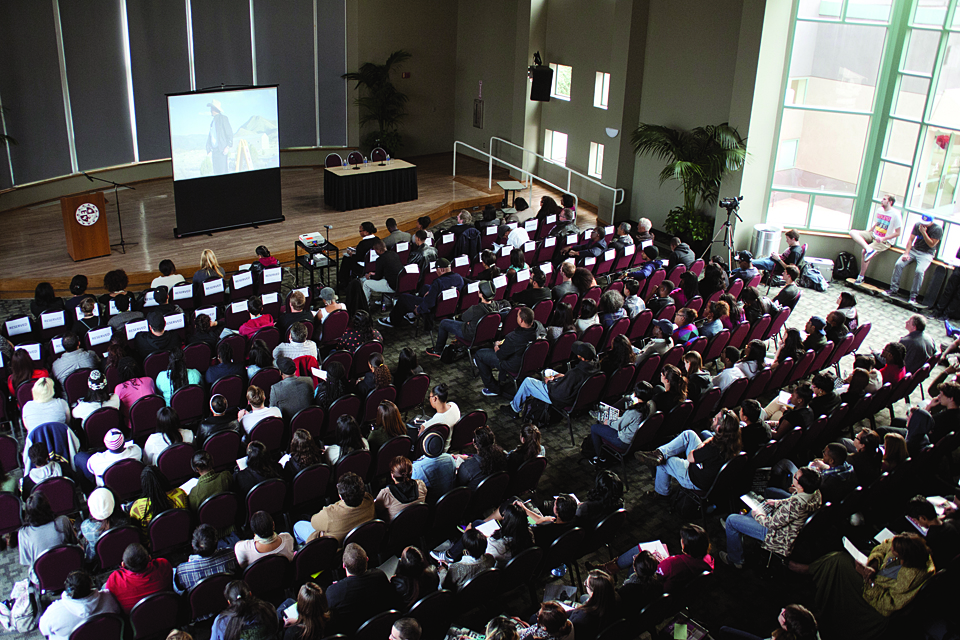Danny Glover Visits CSUN in Honor of Black History Month
Danny Glover called on California State University, Northridge students to address the issues of inequality regarding the mass incarceration of minority populations on Tuesday, Feb. 5 during a conversation and screening of his film “The House I Live In.”
Glover made his request after the majority of audience members, nearly 300 people who packed the University Student Union’s Grand Salon, raised their hands when he asked if they knew someone who was incarcerated. His appearance, “A Conversation with Danny Glover: Mass Incarceration and Political Prisoners,” was hosted by CSUN’s Department of Pan African Studies, the Black Student Union, the Department of Cinema and Television Arts and the Black Alumni Association.
The film, executive produced by Glover and other celebrities, examines the lives of several minorities who are incarcerated. The film underscores data that finds minorities are incarcerated at disproportionately higher rates than whites. According to the film, although white and black people use drugs at approximately equal rates, black people are 10.1 times more likely to be sent to prison for drug offenses. Black Americans represent 56 percent of those incarcerated for drug crimes, even though blacks comprise only 13 percent of the U.S. population.
“This is a film about challenging the structural violence,” Glover said. “And when you look back at the challenges race and class has, there is another conversation that we haven’t had.”
Glover’s film was one of two documentaries shown during the event. Event organizers also screened “Bring Herman Bell Home,” which depicts Herman Bell as a “political” prisoner. Bell was convicted of murder and sentenced to 25 years to life for killing New York City police officers.
“As we celebrate Black History Month and the accomplishments of African-Americans and those of the black diaspora, we must also acknowledge the impediments and challenges that people of color face in our pursuit of equality and justice,” said Theresa White, assistant professor of the Pan African Studies.
Hank Jones, a former Black Panther Party member who joined Glover and Black Student Union President Brande Hookfin on the panel, said he participates in events at campuses like CSUN to “bring consciousness and awareness” about injustices against minorities like Bell.
“We wanted to make change in the 60s and 70s, and that’s what we set out to do,” Jones said. “Some of us are still paying the cost for it as political prisoners, some are paying the ultimate cost, which cost their lives, and some of us are still trying to carry on.”
For more information about CSUN’s Black History Month events, visit the calendar.



 experience
experience